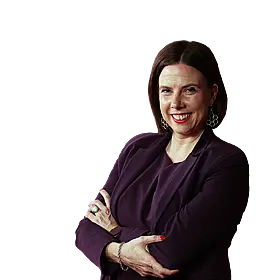An Irish human rights campaigner says there is concern the Turkish government will use sweeping powers in the wake of a failed coup.
Caoimhe Butterly says it is still unclear as to who is in charge of Turkey.
She is attending the 18th International Conference on Human Rights and Health Law (ICHRHL) in Istanbul.
More than 100 people have been killed and 1,563 members of the armed forces arrested after the attempted military coup.
Turkey's state news agency said almost 200 soldiers had surrendered at the military HQ.
"The government is saying that they're in control; the insurrectionists - for lack of a better word - within the army are saying something different," Ms Butterly told Talking Point with Sarah Carey here on Newstalk.
"The people with which whom I'm gathered at this conference...are deeply apprehensive about what comes next."
"If it's any evidence in terms of the past few years, the government will crack down, not only on those who are perceived to have led this coup, but also on minority groups, on Kurds, on human rights activists, etc."
"I think there's a lot of worry here in terms of the very comprehensive and sweeping powers that this will afford the government."
On the possibility of Turkey's accession to the EU as a moderating force within the country, Ms Butterly replied: "It's a loaded question - and at this stage I think it's one that is very far, if not down the line."
"I think the interests unfortunately of the EU have...precluded a focus on human rights for those struggling for basic freedoms in Turkey," she added.
'Show of popular strength'
Andrew Finkel is a US journalist based in Turkey.
He says the military who attempted the coup were not relying on President Recep Tayyip Erdogan's use of social media.
"The officers who tried to implement this coup went by the book - they occupied the State television station, they imposed a curfew...however what they didn't reckon with is the fact that the president would have access to social media," he told Talking Point here on Newstalk.
"He made an appeal to the nation in the most extraordinary way...he did it on an iPhone."
President Erdogan appealed to his people to go out on to the streets to resist the coup.
"This show of popular strength appears to really have taken the wind out of the military sails."
"There is a bulk of the people who do support him...the other thing is even those who hate his guts - and there's an awful lot of them too - do not want a military coup in Turkey, they fear the military perhaps more than they do Mr Erdogan."
"The coup makers really didn't think about civil society - they sort of thought that everyone would roll over and do what they said."
Finkel says Mr Erdogan has taken on most branches of the Turkish State.
"He's moved against the press, he's got court-appointed administrators to seize the entire opposition newspapers, opposition television stations have been unplugged...he's moved against the judiciary."
"And yet the one organisation perhaps he hasn't fully got under his control was the military...what they did instead was open the door for him to take away their power."
While Foreign Affairs Minister Charlie Flanagan is calling for restraint and respect for democratic institutions in Turkey.
He is urging Irish travellers to avoid non-essential travel there in the context of the "unsettled and fluid situation."
Any citizens who have concerns can call consular services on 01-408-2000.









